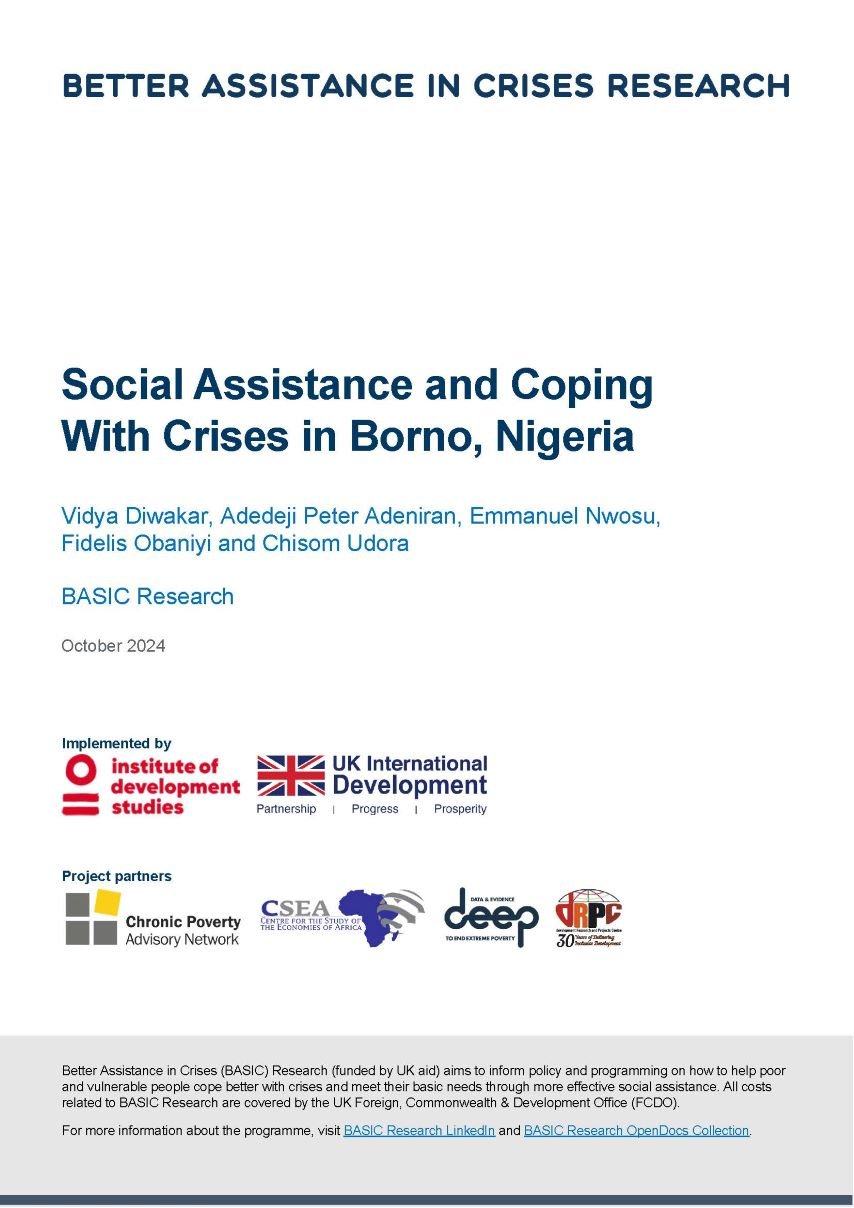This paper investigates the role of crises (e.g. armed conflict, displacement, climate-related disasters, Covid‑19, and economic crises) in driving negative poverty trajectories in Nigeria, alongside the extent to which social assistance may be fit for purpose to respond to intersecting crises. The paper adopts a mixed-methods approach, bringing together analysis of quantitative survey data from 2010 to 2023, with qualitative data collected in six states across the country’s six geopolitical zones in 2023. Study findings point to intersecting crises driving both the acuteness of chronic poverty as well as new instances of impoverishment that are becoming sustained. Social assistance – albeit constrained by limited coverage – plays an important role by supporting promotive and protective means of coping during crises. Based on the study findings, policy recommendations include expanding social assistance coverage, strengthening conflict resolution and peace-building, promoting equity-centred economic policy responses, and addressing underlying structural challenges.
Social Assistance and Coping With Crises in Borno, Nigeria
This paper examines the relationship between social assistance, violent conflict, and intersecting crises, and considers how social assistance can help offset erosive forms of coping that could otherwise drive poverty and food insecurity.
To investigate these issues, the study draws on newly collected household data covering 1,000 survey respondents in 2023 from the Konduga and Maiduguri Municipal Council local government areas in Borno, Nigeria. Borno has been an epicentre for violence over the past 15 years, and has experienced a range of intersecting crises.
Study findings indicate that 43 per cent of households experienced disruptions to income or agriculture, or asset loss, either due to conflict, flooding, or drought. Of these households, 41 per cent reported that more than half of their income source was lost. Despite the negative effects of crises, only 1 in 10 households received social assistance in the year preceding the survey, mainly through non-governmental organisations. This indicates that social assistance is simply not getting through to the people who need it.
Perhaps as a result, households are increasingly drawing on negative and even erosive forms of coping – for example, by being less able to save, less able to make investments, and increasing reliance on loans that together could drive downward mobility. The paper concludes with broad-brush implications for social assistance programmes to become more effective amidst violence and climate-related disasters.
The paper is authored by Vidya Diwakar, Adedeji Peter Adeniran, Emmanuel Nwosu, Fidelis Obaniyi, Chisom Udora

